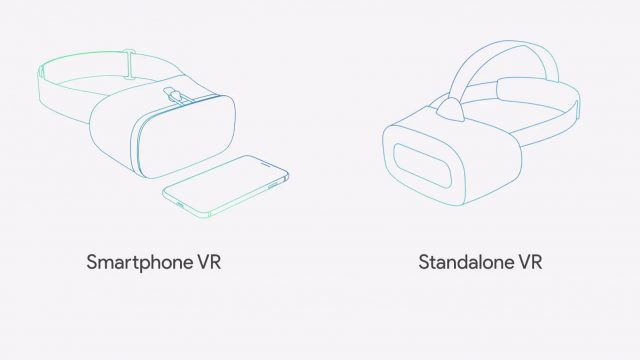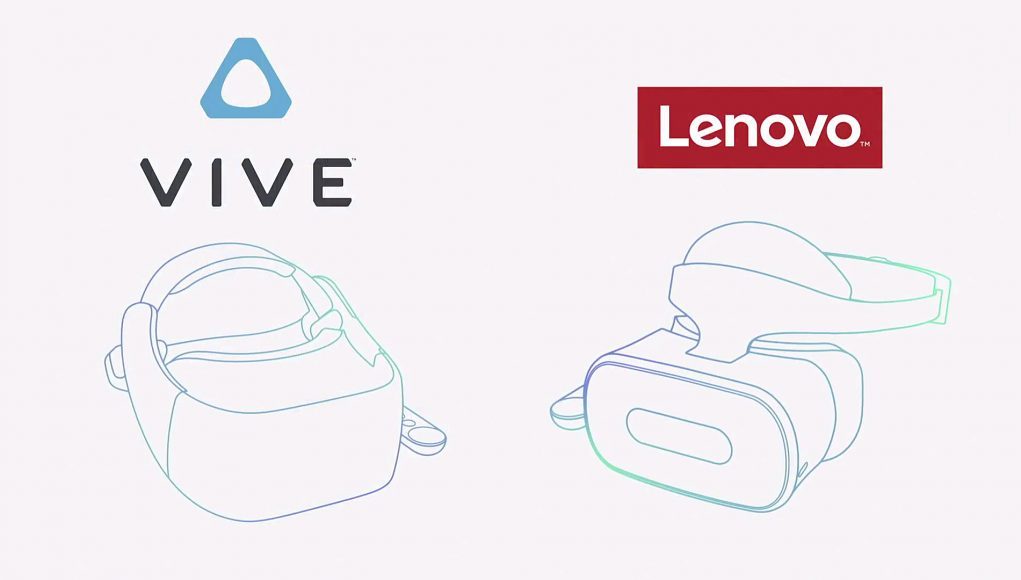On stage at the company’s Google I/O 2017 developer conference today, the company announced that it is building standalone Daydream VR headsets. The first partners work with the company to bring such headsets to market is HTC and Lenovo.
Google announced Daydream, their high-end Android VR platform at I/O last year, and then launched the Daydream View headset, which is powered by a snap-in smartphone, in late 2016. Now the company has announced that it is building standalone VR headsets for Daydream which build everything into the headset.
In a surprise announcement, Google says one of the first companies it is working with to develop a standalone Daydream headset is HTC, which makes the high-end Vive VR headset for PC. Lenovo was also announced as a partner working a standalone Daydream VR headset. On stage an outline teaser of two different looking VR headsets was teased. These devices will launch later in 2017, Google said.
The standalone Daydream VR headsets will include inside-out positional tracking (a big upgrade over the rotational-only tracking of the smartphone-required Daydream View headset) using a computer-vision based technology that the company is calling ‘World-sense’. The tracking tech won’t require any external beacons or sensors to enable positional tracking.
 Clay Bavor, Google’s VP of VR, said on stage that the benefit of a standalone headset is that everything is built right in, and the device can be built and optimized for VR rather than being stuck with the constraints of a smartphone.
Clay Bavor, Google’s VP of VR, said on stage that the benefit of a standalone headset is that everything is built right in, and the device can be built and optimized for VR rather than being stuck with the constraints of a smartphone.
Bavor says that Google worked with Qualcomm to create a reference version of the standalone Daydream VR headset. This will form a foundation from which partners like HTC, Lenovo, and others can build their own standalone headsets for Daydream.
This story is breaking. Check back for more information as it comes.







